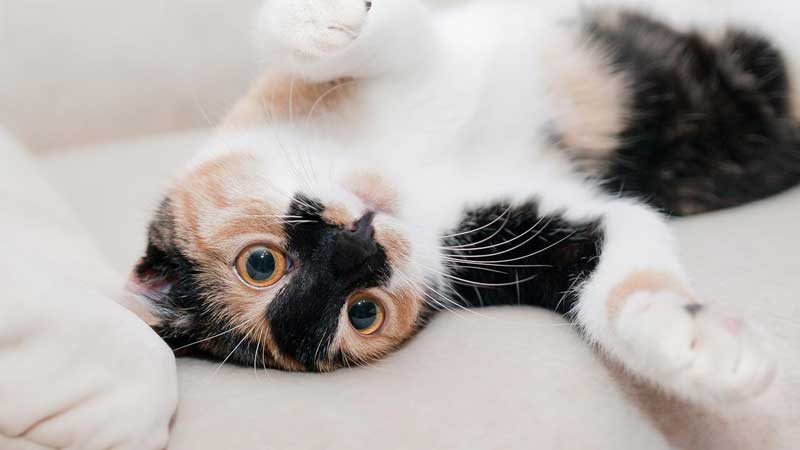Do Male Cats Change After Being Neutered?

Most of the testosterone produced in a male's body is in his testicles, which are extracted during a procedure known as neutering.
This hormone regulates their oestrus-associated roaming in search of females, scent-marking, aggression toward other males, and other behaviors connected to mating.
Male cats typically lose their sexual behavior after being neutered. However, some males may retain their mate-seeking behavior or interest in females for years.
Changes That Occur After Neutering Your Male Cat
Male adult cats in good health have high blood levels of testosterone. The hormone affects the body in a variety of ways. It encourages more muscle mass. It promotes movement. Additionally, it boosts the need to mate. Testosterone levels in the blood of neutered male cats gradually fall. This frequently results in a change in how they behave. One of the most enduring effects is a decreased urge to get forth in search of fights and mates.
After being neutered, many cats, though not all, become less energetic and hostile. Urine spraying typically gets lessens, but not always. In 80–90% of cases, neutering also gets rid of or lessens the frequency of behaviors connected to reproduction. Numerous advantages accrue to cats' owners as well as to the eradication of this kind of behavior.
A pet that has been neutered becomes cleaner and calmer
Without the desire to mate, your cat becomes much less noisy, less likely to make cat calls, and less likely to look for a partner constantly. The neutered cat is no longer eager to seek out and chase females. They are no longer stressed in having to mark their territory by urinating all over the place and yard.
Additionally, neutered cats become a bit friendlier.They transition into being kind and affectionate even to their owners. Male cats that have undergone neutering result in less roaming and also engage in fewer animal conflicts.
Cats that were neutered usually obtain improved health
Testicular cancer is no longer possible, and the danger of prostate issues is lowered without these organs. The absence of excessive roaming among cats who have access to the outdoors reduces the chances of tragedies. They are less likely to get bitten or scratched, which can occasionally spread highly deadly diseases like the feline immunodeficiency virus or feline leukemia. This is because their tendency to attack other males is suppressed.
However, because scent-marking is behavior influenced not just by sexual hormones but also by the animal's stress level, neutering does not remove it. In scent-making, the difference between unneutered cats and neutered cats is the fragrance of their urine, which is less potent in neutered cats due to the low levels of felinine - a compound that gives urine a strong scent and is common in unneutered cats.
All of these behavioral alterations take place either right away following neutering or several weeks later. Since neutering pre-pubertal cats (6-7 months old) has the same outcomes as neutering adult cats, neither their age nor their surroundings or past experiences seem to impact these alterations significantly.
You May Also Like
 Cat HealthIs Neutering Painful For Cats
Cat HealthIs Neutering Painful For Cats Help & AdviceHow Do I Care For My Cat After Neutering
Help & AdviceHow Do I Care For My Cat After Neutering Help & AdviceHow Do I Know if My Cat Needs to be Neutered?
Help & AdviceHow Do I Know if My Cat Needs to be Neutered? Cat HealthWhat Is The Best Age To Spay Or Neuter A Cat?
Cat HealthWhat Is The Best Age To Spay Or Neuter A Cat? Help & AdviceTo Keep Your Cat Live Longer, These 8 Factors Must Be Paid Attention To
Help & AdviceTo Keep Your Cat Live Longer, These 8 Factors Must Be Paid Attention To Breed ReviewsThe 6 Disadvantages of Male Cats, Can You Accept Them?
Breed ReviewsThe 6 Disadvantages of Male Cats, Can You Accept Them?